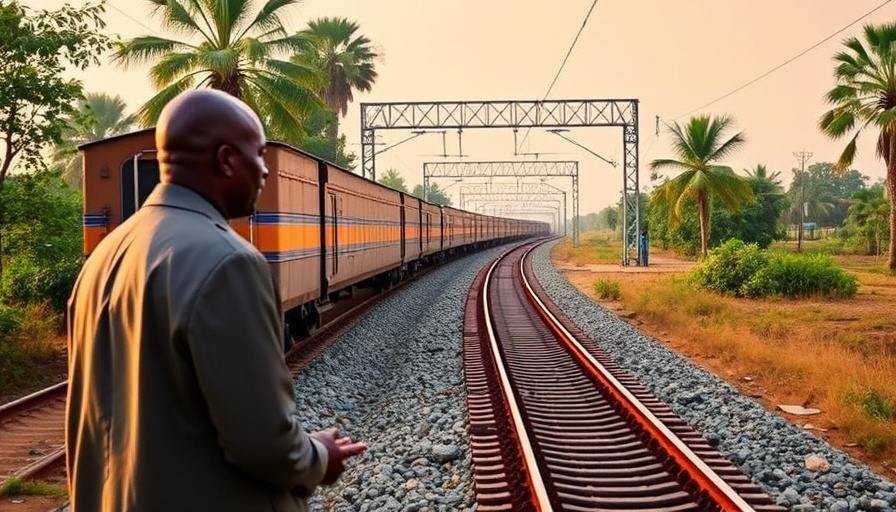
Northern Corridor States Push for Expedited Railway Projects
In a decisive move, member states of the Northern Corridor have ambitiously united to bolster the railway networks that serve as vital trade arteries for the region. An annual plan has been greenlit, accompanied by a budget of $4.5 million aimed at accelerating railway-related endeavors that promise to revolutionize logistics across East Africa.
Why Rail Connectivity Matters More Than Ever
As the volumes of cargo flow through East Africa's main shipping hub, the Port of Mombasa, the urgency for a robust railway system has intensified. Recent analyses reveal that transporters incur costs of approximately $1.8 per kilometer per container—nearly double the international standard. Additionally, countries are burdened with up to $2,160 per kilometer yearly on road maintenance. The escalating repair expenses underscore the rationale for transitioning from road to rail solutions, which are considerably less taxing on both budgets and infrastructure.
Collaboration Across Borders: A Key Strategy
Representatives from Kenya, Uganda, DR Congo, Burundi, Rwanda, and South Sudan convened to address not only physical infrastructural bottlenecks but also non-physical barriers impeding trade. The focus on harmonizing customs procedures and reducing excessive paperwork represents a notable shift towards greater regional cooperation. Analysts underscore that seamless rail connectivity could significantly enhance trade volumes, therefore positioning East Africa as a competitive player in global trade.
Current Railway Initiatives in Kenya and Uganda
Progress is being made on several fronts. Kenya and Uganda's railway projects are ramping up with efforts to extend the Standard Gauge Railway (SGR) from Naivasha to Malaba, linking directly to Uganda's expanding rail infrastructure. Uganda has already set its sights on a phased implementation, with preliminary operations commencing under the supervision of Turkish contractor Yapi Merkezi. This coordinated effort aims not only to modernize rail transit within their borders but to facilitate smoother regional trade routes.
Challenges That Accompany Railway Expansion
Despite the enthusiasm surrounding these projects, significant challenges remain. Financing is one of the most pressing issues, with both nations actively pursuing external investments to minimize economic strain on their respective budgets. Additionally, socio-political dynamics may influence the pace and scope of implementation, exemplifying how deeply intertwined fiscal responsibility and political will are in the region's development narrative.
Conclusion: The Future of Rail Transport in East Africa
The revitalization of rail transport in the Northern Corridor is not merely a transportation upgrade; it represents a potential paradigm shift in how East Africa engages in trade and economic development. Stakeholders must navigate logistical hurdles while leveraging opportunities presented by international partnerships. As policy discussions continue, the potential for realizing a more integrated, efficient, and competitive economic landscape hangs in the balance.
 Add Row
Add Row  Add
Add 


Write A Comment